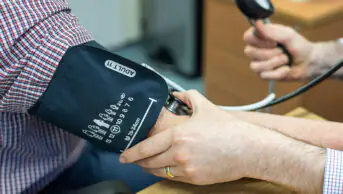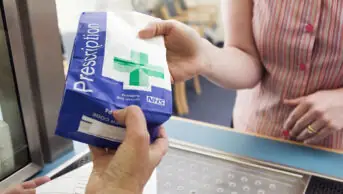
Wes Mountain/The Pharmaceutical Journal
The exciting clinical future envisaged for pharmacists in the UK will depend on the growing number of independent prescribers, who will be essential to facilitating quicker and more convenient access to safe and high-quality healthcare. But to train these new prescribers, it will be vital to expand the pool of those willing to mentor and supervise them.
At the end of 2023, there were almost 18,000 independent prescribers (IPs) on the General Pharmaceutical Council (GPhC) register. This number has increased more steeply during the past year, as pharmacists prepare to expand their clinical roles with new services, such as the IP Pathfinder programme in community pharmacy, which will launch in England in January 2024 (see Figure 1).
Yet, despite this increase in IPs, there is an ongoing shortage of those choosing to become so-called designated prescribing practitioners (DPPs), who are needed to supervise and assess trainee prescribers during a period of learning in practice.
With demand for DPPs set to increase dramatically from 2025/2026 — when all pharmacy graduates will train to become IPs during their foundation year — this shortage of DPPs will become all the more pressing. Any employer wanting to take on a foundation trainee pharmacist in 2025/2026 must confirm that they can provide access to a DPP by March 2024.
If you think you can be a DPP, then why aren’t you?
Danny Bartlett, a DPP and lead pharmacist at Horsham Central Primary Care Network
Danny Bartlett, a DPP and lead pharmacist at Horsham Central Primary Care Network (PCN), West Sussex, says that it is time for pharmacist IPs to “pay it forward”. “If you think you can be a DPP, then why aren’t you?” he asks.
The difficulties in planning DPP capacity are compounded by the lack of a central database of DPPs, meaning that no one knows exactly how many there are. The GPhC tells The Pharmaceutical Journal that because a DPP can be any healthcare professional, it is difficult to set up a national database and it has “no plans” to do so “at this time”, although the Royal Pharmaceutical Society (RPS) says that it is “exploring … the feasibility” of setting one up.
Elsewhere, work is gearing up to remove the barriers that may be dissuading pharmacists from taking on the DPP role ahead of the 2025/2026 deadline.
Three-year rule
The DPP role was created following regulatory changes in 2018/2019, which enabled non-medical prescribers to take on the role of supervising trainee non-medical prescribers. This was previously carried out exclusively by medical practitioners.
To reflect the expansion of this role, a competency framework for DPPs was created by the RPS in 2019[1].
Under the framework, to be eligible for the DPP role, pharmacists need to demonstrate evidence of achieving 36 competencies across three areas, focused on their experience, ability to deliver the role, and having an appropriate environment for the trainee to learn in (see Box 1).
“That can be quite off-putting for potential DPPs when they see the work involved [in taking on the role],” says Graham Stretch, president of the Primary Care Pharmacy Association and a DPP in primary care.
Stretch says that the RPS framework is written in language that most people are not familiar with. “In the real world, they don’t talk about competency frameworks and all that business. So, when they see it, it feels like a barrier,” he explains.
“There needs to be some efforts to, not necessarily simplify the framework, but instead to provide more guidance around the competencies,” he adds.
The RPS is keen to receive feedback on the framework, which it is set to review in 2024. “We’re committed to making it as user-friendly as possible,” explains Wing Tang, head of professional standards at the RPS.
A second barrier to taking on the DPP role is that most IP course providers state DPPs must be “an active prescriber, who would normally have at least three years’ recent prescribing experience”, as outlined in the RPS framework.
However, the RPS clarified in May 2023 that, when creating the framework, the steering group anticipated there would be circumstances where a period of less than three years of recent prescribing experience would be justified, hence the use of the word “normally”, which it said provides flexibility. Giving an example, it said: “It may well be appropriate for a person with extended clinical experience prior to becoming a prescriber, to become a DPP with less than three years’ recent prescribing experience.”
In addition, the GPhC tells The Pharmaceutical Journal that its standards for the education and training of pharmacist IPs do not stipulate a minimum of three years’ recent prescribing experience and that it does not constrain potential DPPs with less than three years’ experience from taking on the role, provided there are robust mechanisms in place for ensuring they are fit to be supervisors[2].
Despite this, 16 IP training providers, who responded out of the 50 providers that were approached by The Pharmaceutical Journal, all said three years’ recent prescribing experience was a mandatory requirement for DPPs supervising trainees on their courses.
“I think everyone needs to change their mentality and be a bit more realistic of what they want as a DPP,” says Bartlett.
“Because, if I’m a university putting this course on, and I know for sure this two-year qualified pharmacist has got supervision experience, works actively in a clinical role, is going to be a very good DPP, and they can evidence that in their application, then why would we get any rebuttal from the GPhC?”
He emphasises that course providers need to “think a bit more outside the box and [be] less black and white”.
In January 2024, NHS England published guidance on prescribing supervision for the foundation trainee pharmacist programme, which confirmed that DPPs would not require three years of recent prescribing experience to supervise foundation trainee pharmacists. However, it said that DPPs would need to be active prescribers in a patient-facing role, with appropriate knowledge and experience relevant to the trainee’s nominated prescribing area[3].
Box 1: Criteria for a designated prescribing practitioner
To become a designated prescribing practitioner, a person must:
- Be a registered healthcare professional in Great Britain or Northern Ireland with prescribing rights;
- Be in good standing with their professional regulator (have no sanctions or conditions on their registration and no current fitness-to-practise issues);
- Be an experienced prescriber, who would normally have at least three years’ prescribing experience*;
- Be an active prescriber in a patient-facing role, practising in the areas in which they will be supervising;
- Be able to demonstrate and assess patient-facing clinical and diagnostic skills;
- Have previous experience or training in teaching and/or supervising in practice;
- Be able to demonstrate evidence of meeting all the competencies outlined in the Royal Pharmaceutical Society’s Competency Framework for all Prescribers;
- Be able to demonstrate evidence of meeting all the competencies outlined in the Royal Pharmaceutical Society’s Competency Framework for Designated Prescribing Practitioners.
*This is not required for designated prescribing practitioners supervising foundation trainee pharmacists but may be required by some non-medical prescribing course providers.
Time
The effort required to take on an IP trainee is another barrier for prospective DPPs, and it can vary hugely depending on the individual trainee and their location.
Being a DPP is cumbersome and time consuming
Graham Stretch, president of the Primary Care Pharmacy Association
“Being a DPP is cumbersome and time consuming,” says Stretch, explaining that, as well as supervising IP trainees for their learning in practice, there are around 70 competencies to assess them against, all of which takes the DPP away from their usual role. And some trainees need more time than others, he adds.
“I’ve had to spend 150 hours with one trainee. They were very experienced but . . . we had to build the communication skills. And of course, the forms take hours as well, so it is a substantial commitment,” says Stretch. However, he stresses that “you’ve got to invest” that time and says that sharing the workload among other prescribers in the PCN is a model that has worked well.
The time required for DPPs to train IPs is accentuated in remote or rural areas of the UK, where there are fewer prescribers. Owing to the added difficulties in accessing DPPs in these areas, current DPPs are having to take on a bigger pool of trainees across a large area.
Catriona Sinclair is a community-based DPP for both the east and west coast of the Scottish Highlands, where she has been training IPs for the past three years. Most of her supervision is done remotely, involving video interactions and retrospective reviews to support trainees, which can be time consuming.
“It’s a challenge when people are trying to do these courses in remote areas,” says Sinclair. “If we can do some face-to-face time, that’s great, but it’s not always possible.”
Sinclair believes that universities need to look further into a model for remote supervision of trainees. She also highlights the importance of DPPs understanding this challenge and encourages them to “be creative” about how they manage remote supervision.
Remuneration
A lack of remuneration for DPPs is a further challenge. At present, there is no financial support from the government or regulatory bodies for a DPP to take on an IP.
There needs to be funding out there; your time is money and it does require some recompense
Catriona Sinclair, designated prescribing practitioner in community pharmacy, Scottish Highlands
Sinclair says that, although there is a responsibility to give back to the profession, pharmacy is one of the only healthcare professions that do not reimburse staff for taking on trainees. She believes that funding the role would be an investment for the profession in the long run.
“There needs to be funding out there; your time is money and to provide all that level of training and benefits that come from it does require some recompense,” says Sinclair.
In some cases, DPPs are charging fees of a few thousand pounds for their services. Stretch says private fees can cause problems with conflicts of interest. “If I take money from you, it’s going to be pretty awkward if we get to 90 hours and I don’t think you’re up to standard,” he points out.
There is also added complexity as to where funding should come from, particularly when taking on trainees from different sectors, he says. “If a GP DPP gets approached to take on a community pharmacist, the GP clinic will ask questions: what’s in it for us?”
There are some PCNs, however, that are providing reimbursements for DPPs. Reg Rehal is an advanced clinical pharmacist and a DPP at the Peartree Surgery and West Horndon Surgery in Essex.
“Retrospectively, we managed to negotiate a fee with the PCN, where they reimburse us for our time, skill and responsibility,” he explains.
“Now, the PCN has realised this is going to happen more and has put a proper remuneration scheme in place for training prospective prescribers.”
Rehal sees this as a positive step for DPPs and says there should be national standardisation to create equality across the pharmacy sector. “It doesn’t matter if you’re in Birmingham, London, or Essex, because then it’s fair across the board and the tutors are remunerated appropriately for their time and effort,” he says.
Call for change
During a panel discussion at the RPS annual conference, held in November 2023, there were calls for a change to the model of one DPP per student, standardisation of university programmes, and a review of the DPP competency framework to further define the role in view of the changes coming in 2025/2026.
Talking to The Pharmaceutical Journal after the conference, Laura Wilson, director for Scotland at the RPS, who chaired the discussion, says she agrees that changes to the DPP model are required and more guidance on collaborative and remote working may be needed.
“There’s definitely some work that we need to do on what, as an organisation, we believe the DPP model to look like, and the [discussions at the] conference will feed into some of that,” she said.
“Part of the reason for having that session is to allow RPS members to ask questions and put forward their opinions on what we [the RPS] need to consider and what policy we need to develop around that.
“By working through that process, hopefully, we can then produce a guidance framework that DPPs will work against,” she added.
A steering group to review the RPS framework is set to assemble in early 2024.
In the meantime, Bartlett encourages DPPs to change their mindset around supervision. “My top tip is to overlap their supervision with whatever is happening in the clinic at the moment,” he says.
“So, if you’re running clinics around blood pressure, and the trainee wants to do blood pressure and cardiovascular, then have a joint clinic together, have a debrief after the end of the clinic, or after each patient.
“I think that sometimes takes the argument for funding out because then you’re doing it anyway. It might take slightly longer, but it’s not going to be anywhere near as arduous as having a separate, purpose-built prescribing clinic,” says Bartlett.
Preparation for 2025/2026
There are several ongoing government-funded projects to support pharmacy prescribing and DPP numbers (see Box 2).
In March 2023, Health Education England tendered a contract for a provider to train 500 community pharmacists to become DPPs by the end of March 2024. The contract, worth £500,000, was awarded to pharmacy workforce training provider ProPharmace.
“ProPharmace offers [free] training to show you how to become an effective DPP,” says Noma Al-Ahmad, managing director of ProPharmace.
Al-Ahmad says that, even though the goal of the three-month course is to improve DPP capacity in community pharmacy, IPs from other sectors can still sign up, with an understanding that they will take on trainees from the community workforce. The DPP course is available as both online and in-person workshops.
“We cover five modules, all related to effective supervision skills. This provides good-quality assurance for organisations who want their IPs to become DPPs,” she adds.
In addition to the support from ProPharmace, NHS England’s WT&E directorate said in a webinar in September 2023 that training materials for DPPs will be developed and published in preparation for the 2025/2026 foundation trainee pharmacists[4].
Speaking at The Pharmacy Show at the Birmingham NEC on 15 October 2023, Nick Haddington, pharmacy dean for south-west England at NHS England’s WT&E directorate, also confirmed that the DPP supervising a foundation trainee pharmacist could be the same person as the designated supervisor and could work either at the primary employment site or at another site, adding that each DPP could supervise multiple trainees.
The challenges of being a DPP are unlikely to be solved quickly. But building DPP capacity to enable training of the next generation of IPs will rely on those prescribers already in the workforce taking a leap of faith. As Bartlett puts it: “We need to stop being afraid of being a DPP, throw ourselves into the deep end and realise everyone benefits from it.”
Box 2: Overview of NHS-funded designated prescribing practitioner projects in the UK
- Teach and Treat pilot by Health Education England (HEE): ‘Teach and treat’ clinics set up in the south-west of England to support pharmacists training to be independent prescribers (IPs). Regional funding of £56,000 provided by HEE for each designated prescribing practitioner (DPP) working as part of the pilot. Pilot results due in 2024;
- Health Education and Improvement Wales (HEIW): £3m extra funding allocated to pharmacy training in Wales in 2022/2023. HEIW has surveyed existing IPs to establish how they could be supported to take up the DPP role and plans to run training session for future DPPs in March/April 2024;
- DPP project by Community Pharmacy Scotland: Project to support the operational development of the DPP role in community pharmacy. This involves DPPs taking on two IP trainees and providing a short write up on the operational process. Final analysis due in early 2024;
- Designated Prescribing Supervisor (DPS) project in Scotland: Pilot of the DPS role — which provides support to IP trainees and builds confidence in the supervisory role — within NHS Lothian, NHS Lanarkshire and NHS Greater Glasgow and Clyde for IPs who are not ready to become DPPs. Survey and focus groups to take place in 2024, results due in autumn 2024.
- 1Royal Pharmaceutical Society. A Competency Framework for Designated Prescribing Practitioners . Royal Pharmaceutical Society. 2019. https://www.rpharms.com/resources/frameworks/designated-prescribing-practitioner-competency-framework (accessed 16 January 2024)
- 2General Pharmaceutical Council. Standards for the education and training of pharmacist independent prescribers . General Pharmaceutical Council. 2022. https://www.pharmacyregulation.org/education/pharmacist-independent-prescriber (accessed 16 January 2024)
- 3NHS England. Prescribing Supervision and Assessment in the Foundation Trainee Pharmacist Programme from 2025/26 . NHS England. 2024. https://www.hee.nhs.uk/our-work/pharmacy/transforming-pharmacy-education-training/initial-education-training-pharmacists-reform-programme/implementing-foundation-pharmacist (accessed 16 January 2024)
- 4NHS England. Initial Education and Training of Pharmacists Reform: September 2023 Update. NHS England. 2023. https://www.youtube.com/watch?v=mEtEfPUhf_Y (accessed 16 January 2024)


